Saratov stands on the banks of the Volga. At first glance, this great river is the only attraction for tourists, but this is just a common misconception. In fact, there are many interesting places and architectural monuments in the city that you should definitely look at. There are also museums with rich collections that tell about the history of the region, and picturesque parks where it is nice to take a break from the bustle of the city.
Among other things, it is worth noting the Museum-estate of the famous thinker N. G. Chernyshevsky, a native of Saratov, the pedestrian Kirov Avenue, which is pleasant to stroll along at a leisurely pace, the baroque Holy Trinity Cathedral and the exotic Limonarium - a piece of bright tropics in the middle of the temperate Volga region.
What to see and where to go in Saratov?
The most interesting and beautiful places for walking. Photos and a short description.
- Victory Park and the monument Cranes
- Embankment of Cosmonauts
- Saratov bridge
- Prospekt Kirov
- So many golden lights
- Monument to the Saratov harmonica
- National Village of the Peoples of the Saratov Region
- Church Assuage My Sorrows
- Holy Trinity Cathedral
- Saratov Conservatory. Sobinova
- Art Museum. Radishcheva
- Saratov Regional Museum of Local Lore
- State Museum of K.A. Fedina
- Museum-estate of N. G. Chernyshevsky
- Opera and Ballet Theatre
- Saratov Circus. brothers Nikitin
- City Park
- Lipki Park
- Lemonaria
- City Beach
Victory Park and the monument "Cranes"
The memorial complex "Cranes" was erected in memory of the residents of Saratov who died during the Great Patriotic War. It is located on the territory of the Victory Park on Sokolovaya Gora and rises above the city, which allows you to notice the silhouette of the monument from a distance of 20 km. The architectural ensemble consists of several parts, each of which is thought out to the smallest detail and has a deep meaning.
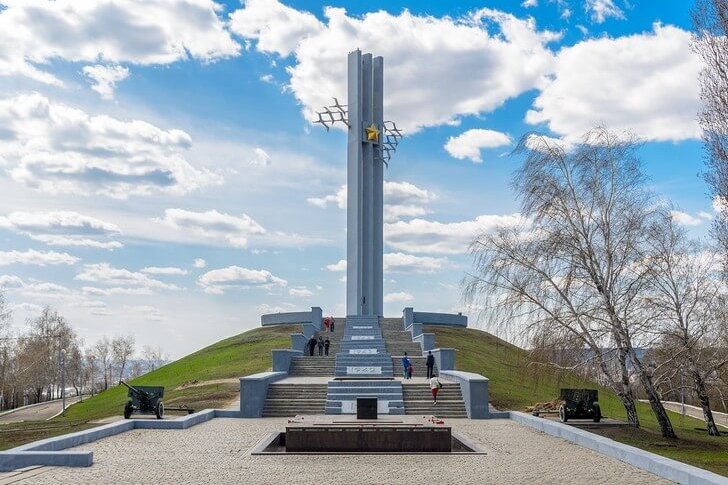
Embankment of Cosmonauts
A street stretching for 2 km along the Volga to the Saratov bridge. At the beginning of the 20th century, piers surrounded by narrow streets were located on the shore, where cargo was dumped. The improvement of the territory began only with the advent of Soviet power and ended in the 1950s. The embankment was designed in the monumental Stalinist Empire style. There are several monuments and a river station here.
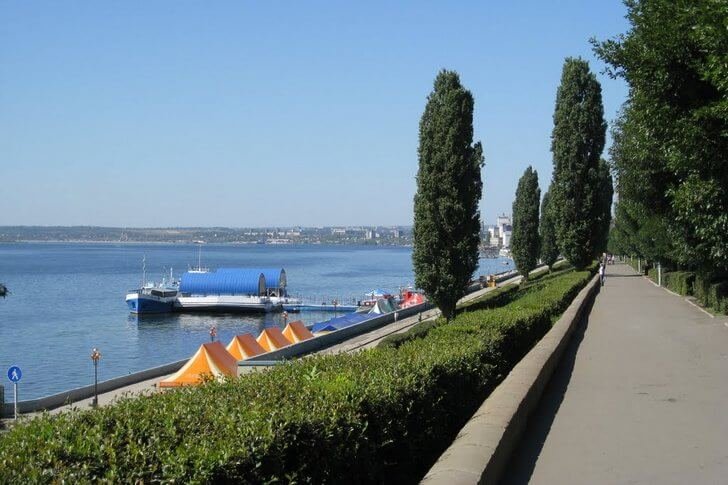
Saratov bridge
Reinforced concrete road bridge over the Volgograd reservoir. It connects the cities of Engels and Saratov. The length of the structure is more than 2.8 km; it consists of massive arches reinforced on supports. The structure was erected in 1965, in 2005-2013, work was carried out to replace some parts and restore the destroyed elements. Saratov Bridge is one of the symbols of the city.
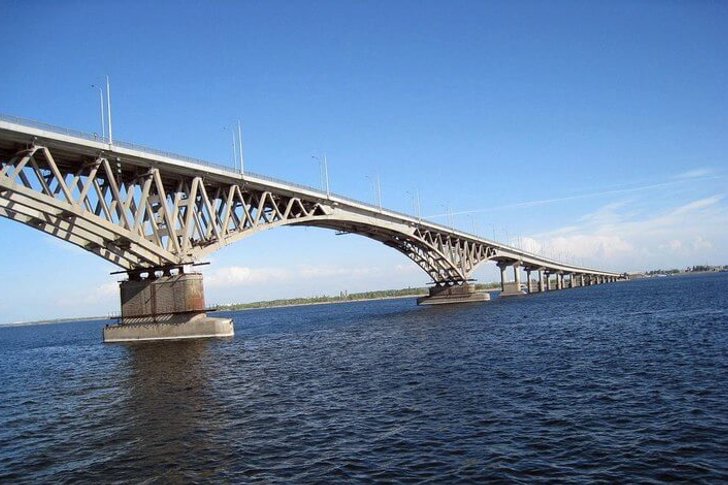
Prospekt Kirov
One of the central streets of the city, where a pedestrian zone was created back in the early 2000s. Unofficially, the street is called "Saratovsky Arbat". The development of the avenue began in the 19th century. At that time, Germans and captured Frenchmen who moved at the invitation of Catherine II lived there. Today the street is one of the main tourist attractions of Saratov.
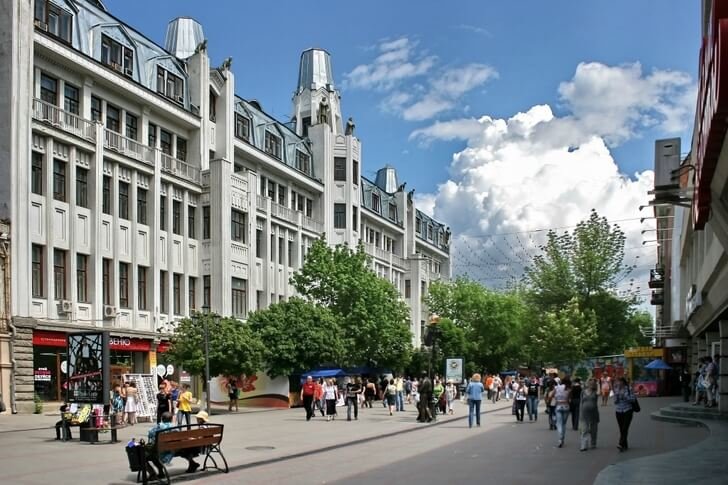
"So many golden lights"
Sculptural composition in the center of Saratov, dedicated to the song, which is considered the unofficial city anthem. It is made in the form of a figure of a young boy with a bouquet of flowers in his hands. The guy is waiting for his beloved under the clock. The monument was erected in 2009 at the expense of MegaFon. For several years of existence, the statue has literally acquired legends.
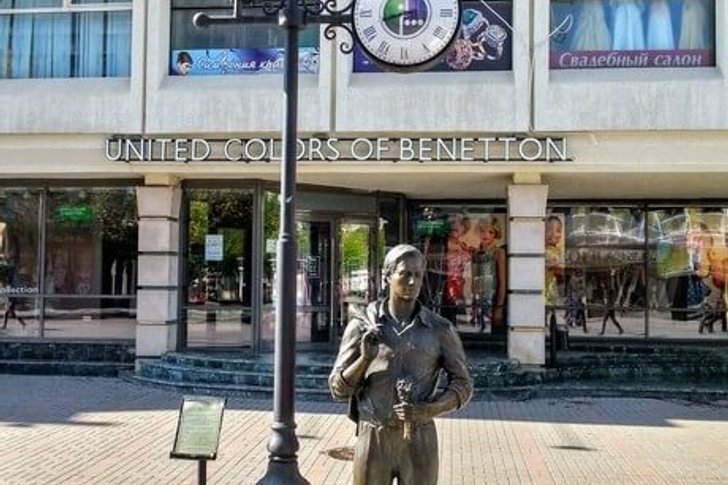
Monument to the Saratov harmonica
Another city symbol - the Saratov accordion was awarded a separate monument on Kirov Avenue. The sculpture in the form of a cheerful accordionist sitting on a bench under a street lamp, performing perky melodies, was a gift from the Express-Volga bank for the City Day in 2009. Passers-by are often photographed next to the musician, as he has already become a local landmark.
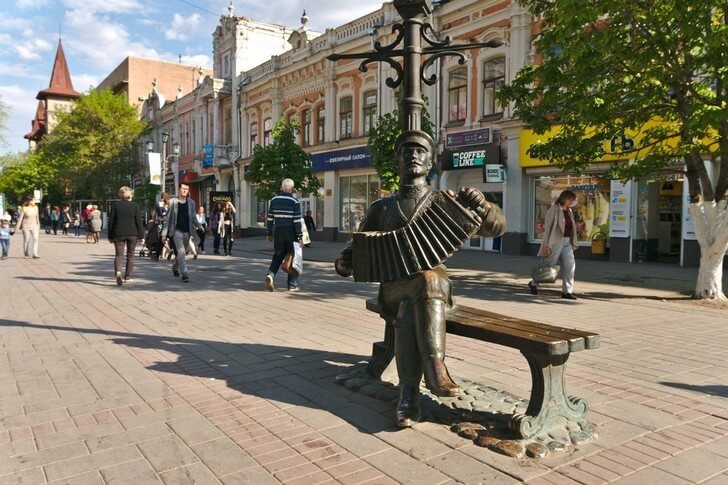
National Village of the Peoples of the Saratov Region
An open-air museum and an ethnographic complex, which is located on the territory of the Victory Park. Here you can learn about the traditions, culture and life of the peoples living in the Saratov region, try national cuisine. The village also hosts educational events, festivals, concerts, various national holidays and other interesting events.
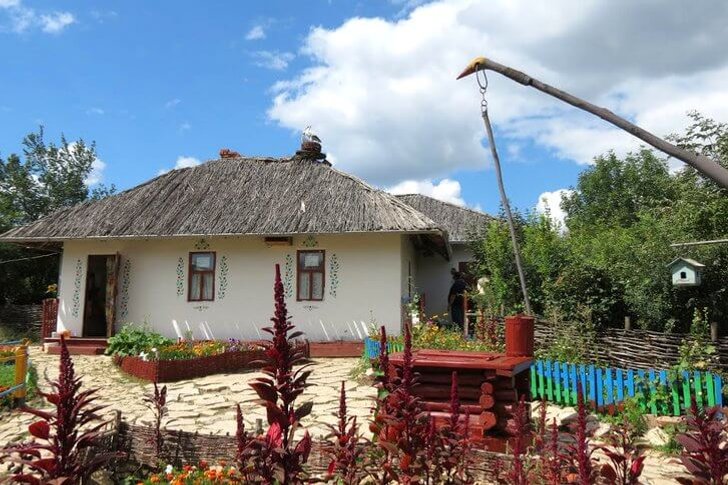
Church "Assuage My Sorrows"
The temple, named after the icon "Assuage my sorrows" with the image of the Mother of God. The building was erected at the beginning of the 20th century according to the project of P. M. Zybin. It is a hipped church. In Soviet times, the city planetarium worked in the building, so it is quite well preserved. In 2006–2008, restoration work was carried out, after which the facade again shone with bright colors.

Holy Trinity Cathedral
The first village church appeared on the site of the cathedral in 1675 on the only city square. In 1684, it burned down, a new stone building was built in 1695 by "the whole world" - residents of Saratov took part in the work. This building also did not survive, as it died in a fire in 1712. The structure that has survived to this day was built in the style of the Moscow (Naryshkin) baroque.
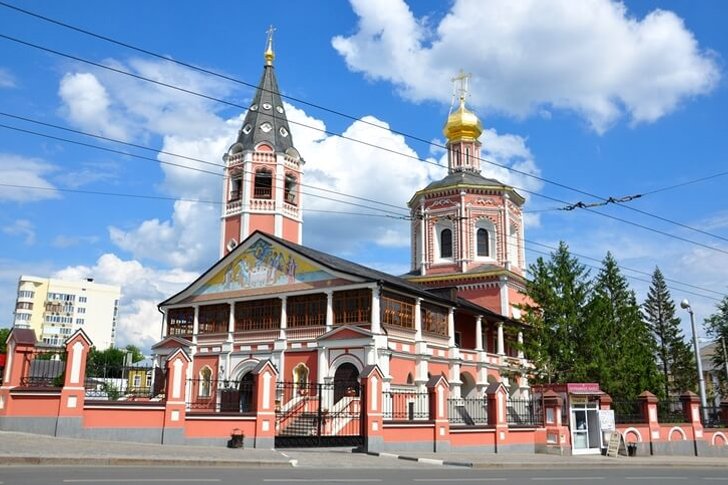
Saratov Conservatory. Sobinova
The Conservatory was founded in 1912, it is one of the very first institutions of higher education in Russia, where they taught the art of music. Initially, the institution was named after Tsar Alexei, but in Soviet times it was renamed in honor of L. V. Sobinov, a famous opera singer, one of the best representatives of the classical school. The building of the conservatory was built in 1902 according to the project of the architect A. Yu. Yang.
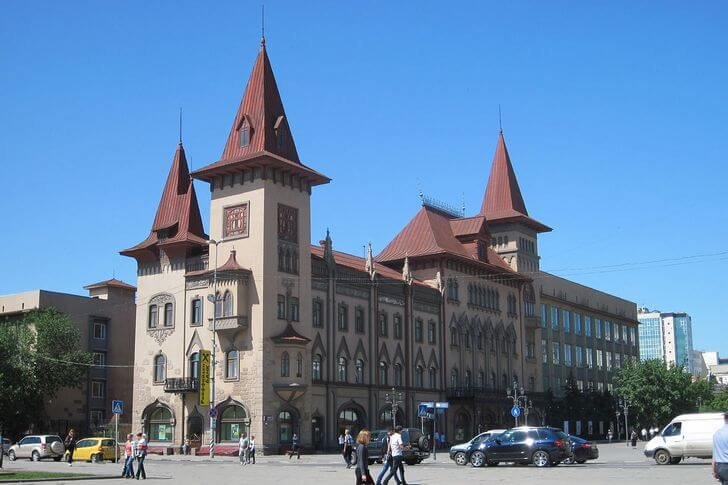
Art Museum. Radishcheva
The gallery is considered one of the most significant art museums in the region. Moreover, in 1885 (after the opening) it became the first exposition in Russia, which people could visit en masse. The basis of the collection was the work of the marine painter A.P. Bogolyubov. We can say that the painter devoted a significant part of his life to the creation of this museum. Here you can see the paintings of Bryullov, Repin, Surikov, Perov, Aivazovsky.
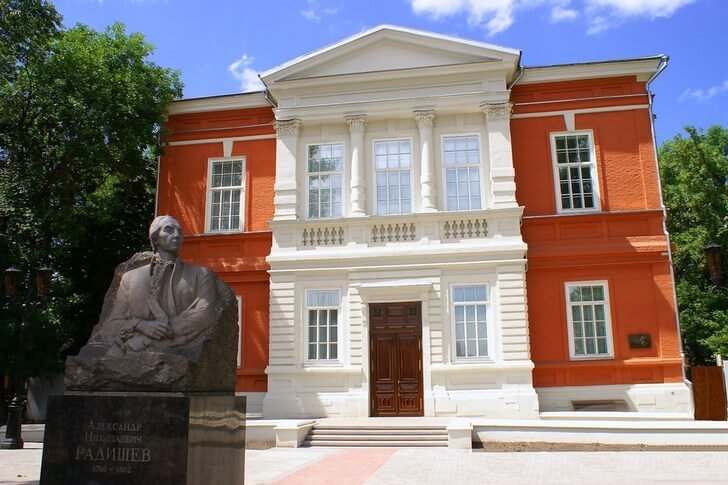
Saratov Regional Museum of Local Lore
The collection was formed in 1886 as a historical and archaeological museum with private funds. Until 1930, the exposition was located in the building of the Art Museum. Radishchev, then she moved to a classic 19th-century mansion, where she remains to this day. The funds consist of 400 thousand items and continue to be replenished with unique exhibits. Visitors can see collections of various subjects - from archaeological to political.
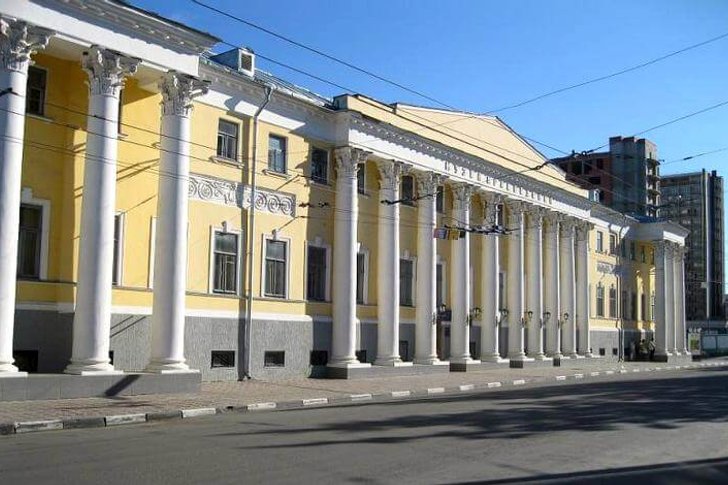
State Museum of K.A. Fedina
The collection is housed on the territory of an 18th-century manor, an architectural monument and one of the oldest buildings in the city. The collection is dedicated to the history of literature of the 20th century. The museum stores manuscripts, books, magazines, art objects - more than 60 thousand items in total. The museum was founded in 1981 and named after K. A. Fedin, a Russian and Soviet writer, Hero of Socialist Labor.
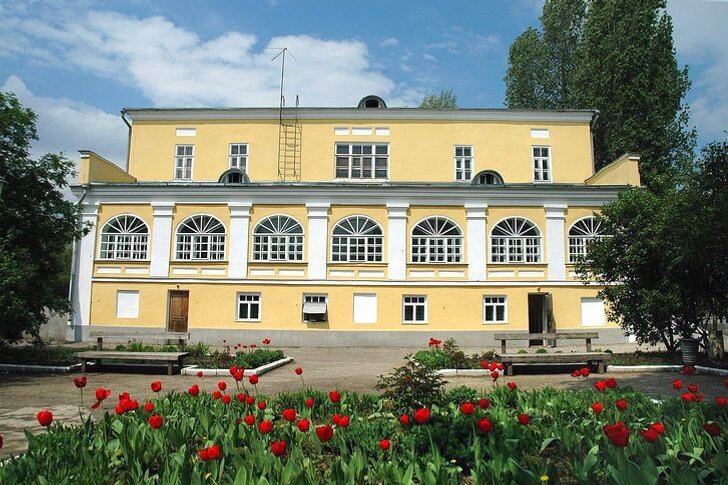
Museum-estate of N. G. Chernyshevsky
N. G. Chernyshevsky - philosopher, writer, revolutionary and critic was born and died in Saratov. In 1920, the estate, where the thinker lived for more than 20 years, was transformed into a museum largely thanks to the assistance of A. V. Lunacharsky. The museum complex includes a memorial house, several outbuildings and an exposition hall. There is also a scientific library with an archive.
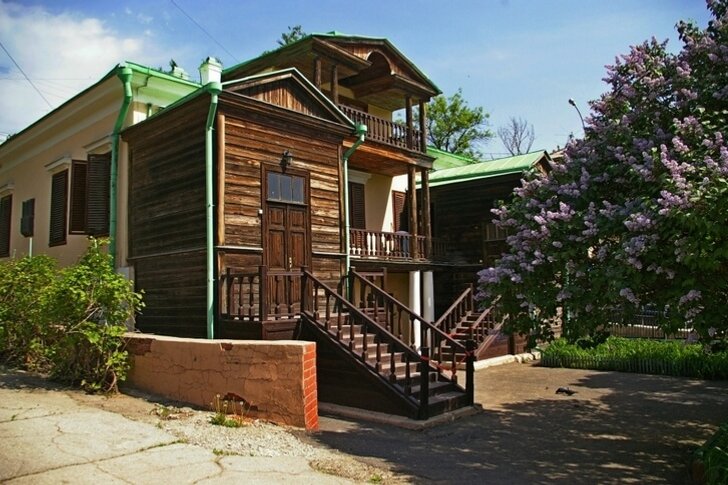
Opera and Ballet Theatre
The history of the Saratov theater began in 1803, when a summer venue for touring groups appeared here. But the first professional troupe was formed in the city only in 1928. Today the scene is one of the best in the Volga region. It staged works of opera and ballet classics. Since 1986, the theater has hosted the Sobinovsky Music Festival.
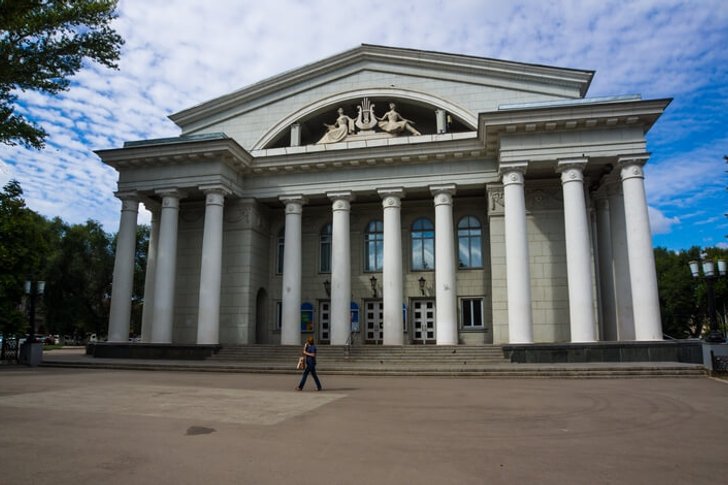
Saratov Circus. brothers Nikitin
The circus was founded in 1876 by the Nikitin brothers, artists and part-time entrepreneurs. Previously, circus performances were held at fairs and temporary venues. The first building was built in 1876, in 1931 a new arena was erected for performances according to the project of B. S. Vilensky. In 1963 and 1998, its major reconstruction was carried out. The circus is known for the fact that Walter and Mstislav Zapashny started their careers here.
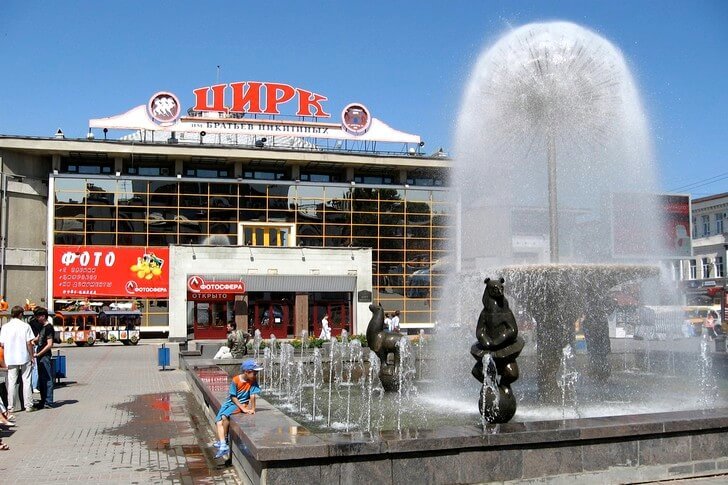
City Park
The largest park in Saratov is named after M. Gorky. Its history began in the 19th century with an ordinary grove, which was gradually ennobled by the hands of captured French (at that time the square was located on the territory of the governor's country estate). At a later time, the site constantly changed owners. The modern look of the park began to take shape only in the 1930s.

Lipki Park
The park is located in the historical center of the city; it is one of the oldest in Saratov. The date of its foundation is considered to be 1825, at that time it was called "Alexandrovsky Boulevard". Toward the end of the 19th century, alleys were laid here and several hundred trees were planted. In the evenings, an orchestra performed for the public. Today, Lipki, together with the City Park, are the favorite resting places of the townspeople.
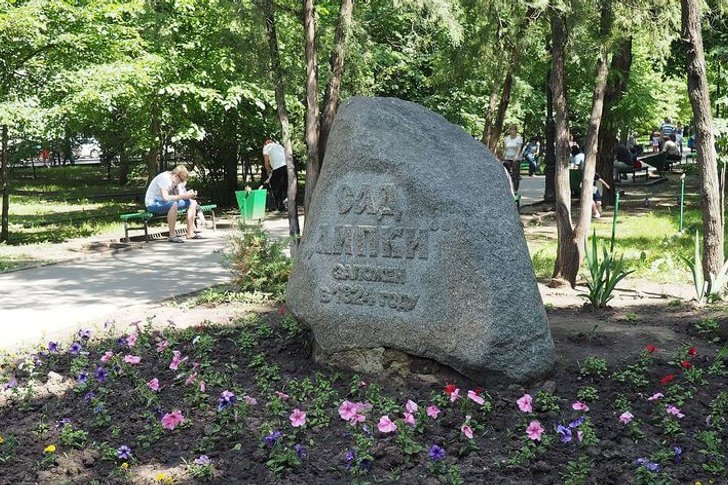
Lemonaria
Limonarium is a botanical garden where several dozen species of exotic plants grow. On its territory, special climatic conditions have been created that allow tropical plants to feel quite comfortable. In gloomy and dull weather, visiting this place will bring a lot of positive emotions, as it will allow you to at least briefly be transported to the country of summer and sun.
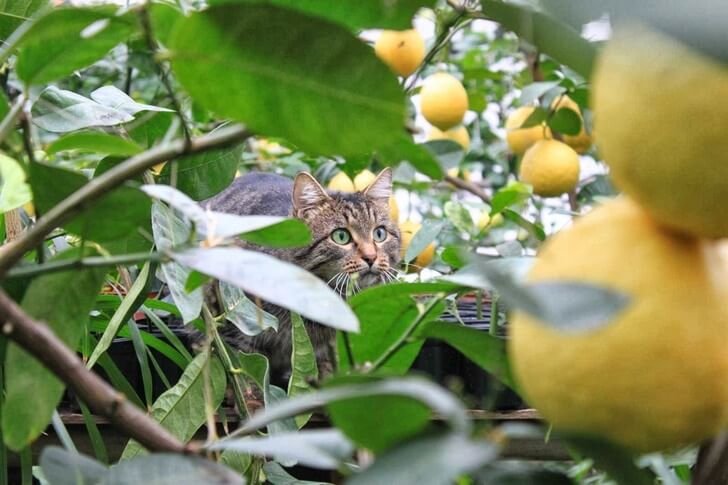
City Beach
The beach is located on the island of Pokrovsky Sands. Here you can swim in the Volga, take a break from the hustle and bustle and recuperate. On the shore there are sports grounds, sources of drinking water, benches, changing cabins, a bathroom, swings and slides for children. On fine summer days, it can be crowded here on weekends, as Saratov residents go to the beach with their whole families and large companies.
